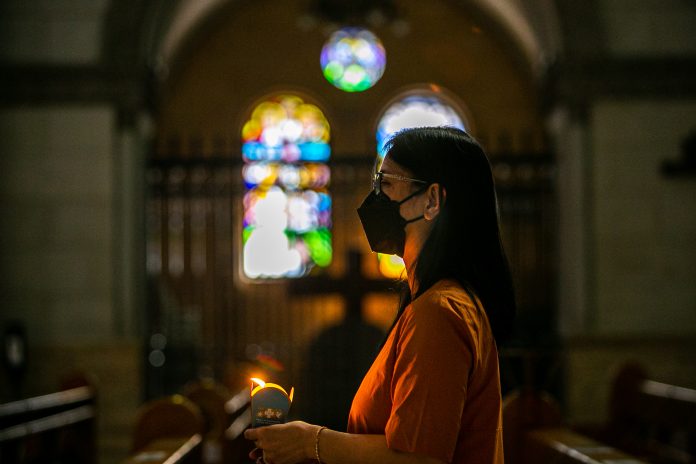Reflection for the 2nd Sunday of Lent (Cycle C)
Today’s readings alluding to the Transfiguration of the Christ vividly recall the configuration of human life that must follow – under the inspiration and promptings of the Spirit – a movement from darkness to light; from descent to ascent; from the sacrifice of the self in service, to the glory gifted by God. It is the only process or pathway that leads to the perpetual repose of heaven, and no other.
In the context of the present liturgical season, it is only through the experience of Lent, culminating in the encounter of the death of the Christ – which may be foreshadowing our own oblation for the kingdom – that we are able to comprehend and make sense of the mystery of the raising-up at Easter: it is only in giving that we receive, it is only in pardoning that we are pardoned, it is only in dying that we are born into eternal life.
A kingdom is only won through a courageous offering of body and blood.
The prologue to the priestly narrative of Genesis evokes and projects this same primeval notion of moving from darkness to light, into creation itself. “In the beginning, when God began to create the heavens and the earth, the earth had no form and was void; darkness was over the deep and the spirit of God hovered over the waters. God said, ‘Let there be light’; and there was light.” In the minds of the ancients, it was clear and sensible that the order of the cosmos in perceivable history, must have evolved from a disorder of chaos in a very distant past.
And perhaps, not a few cultures would have seen and understood through such perceivable history, the necessity for a natural cycle of creation, destruction and re-creation; of birth, death and rebirth; of ministry, self-immolation and liberation. Abraham in his fragile faithfulness, had to be given a vision by God that before all nations can be founded through him, “dreadful darkness” must first envelop those that have given up their “three-year” lives in order for the illumination of “a smoking firepot and a flaming torch” to shine forth: The Christ became our Lord precisely because his “three-year” mission of mercy and compassion, of physical and spiritual healing, of social immersion and upliftment, had to give way to his own oppression and persecution in order for his vindication and resurrection to take place, thereby animating the generations of his disciples who followed him in the same mission for justice and peace.
So, Paul strongly exhorts us to leave what is fleeting and everything that can kill the spirit, “Unite in imitating me … For many live as enemies of the cross of Christ. … they are heading for ruin; their belly is their god, and they feel proud of what should be their shame. They only think of earthly things.” For “… our citizenship is in heaven, from where we await the coming of our Savior … He will transfigure our lowly body, making it like his own body, radiant in glory, through the power which is his, to submit everything to himself.” Therefore, “… be steadfast in the Lord.”
Like Peter, John and James, we have human limits to fully comprehending the ultimate fate of remaining “steadfast in the Lord.” Where will the struggle against darkness lead to? What concrete meaning is there in nameless or anonymous, even humiliating service for the ‘ungrateful’ other? We will always be tempted to abandon the ‘good yet difficult life’ for the “evil yet easy life’; but as always, it is the Spirit who fills up what is lacking in our finiteness, proclaiming in no uncertain terms that the darkness we experience in perilous environments and amid hostile peoples, will lead to light; that human faithfulness and trust – borne out of humility and dependence, not out of pride and independence – has its final reward in divine faithfulness and love.
Hence, when stressed, fatigued and depressed from constant rejection; when in “dreadful” doubt or despair for a world seemingly unwilling to listen; and when impelled to temporarily escape or permanently flee from the realities and our responsibilities for the human condition, may we always pray and persist in modeling our own lives to the configuration of the life of the Christ, remembering the words of our gracious Abba, “This is my Son, my Beloved, listen to him.”
Brother Jess Matias is a professed brother of the Secular Franciscan Order. He serves as minister of the St. Pio of Pietrelcina Fraternity at St. Francis of Assisi Parish in Mandaluyong City, coordinator of the Padre Pio Prayer Groups of the Capuchins in the Philippines and prison counselor and catechist for the Bureau of Jail Management and Penology.
The views expressed in this article are the opinions of the author and do not necessarily reflect the editorial stance of LiCAS.news.









